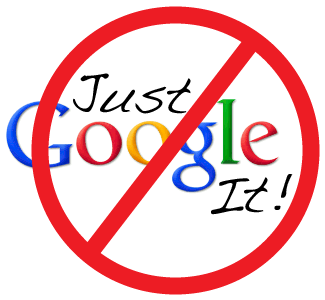The Death of a Brand Name – Google It!
 We are bombarded with marketing everywhere we go, and sometimes it is so effective that the product itself becomes a noun or a verb, often to the detriment of the company, but to the benefit of the competition – let’s check out some examples of this happening today.
We are bombarded with marketing everywhere we go, and sometimes it is so effective that the product itself becomes a noun or a verb, often to the detriment of the company, but to the benefit of the competition – let’s check out some examples of this happening today.
It’s not surprising the brand name Sellotape stuck when referring to transparent, cellulose-based, pressure sensitive adhesive tape - let’s face it, it’s not such a mouthful. But it’s not the only brand name product that has become a common noun – there are a lot more out there than you realise!
From Lino to iPod, Google to Frisbee, Hoover to Jeep, and Styrofoam to Kleenex, we are constantly surrounded by brand names and trademarks that have become so representative of the product that we don’t even realise we have become complicit with the marketing machine!
This has been happening since brand names were invented, and usually occurs when the product dominates the market to such an extent that consumers associate the name with the product type, and thus a noun or verb is born. For instance, if you saw a flying disc you’d call it a Frisbee, when in fact it could be one that’s not actually trademarked by the Frisbee company.
Possibly the earliest case of this happening is Linoleum, which has been shortened to Lino in every day parlance. The floor covering was originally named by Frederick Walton in 1864, and following a lawsuit for trademark infringement in 1878, was ruled as generic.
The reason Mr Walton fought so hard was due to this argument: when a trademark/brand name becomes known as a household object/product, consumers don’t differentiate between the product owners and their competition – this has been coined (somewhat mockingly) as brand genericide.
 A couple of more recent examples include the iPod. Have you ever heard anyone ask “What’s playing on your MP3 player these days?” And Google has become so synonymous with the usage of a search engine that it officially became a verb recognised by the Oxford English Dictionary in 2006.
A couple of more recent examples include the iPod. Have you ever heard anyone ask “What’s playing on your MP3 player these days?” And Google has become so synonymous with the usage of a search engine that it officially became a verb recognised by the Oxford English Dictionary in 2006.
The Google organisation has tried so hard to fight this brand genericide that it currently contacts publications that refer to searching online as ‘Googling’, and has even tried (and failed) to stop it happening in a legal arena. But as it has become a colloquialism with the common folk, the company has lost control of the situation, and will pretty much just have to live with it now.
So, although most marketing companies can only dream of their product having such a large amount of recognition, the irony is that when they do, product sales can drop, and their competitors usually benefit.
Aspirin, Roller Blades, Biro, Chapstick, Yo-Yo, and Thermos have all suffered the same fate; can you think of any others?


